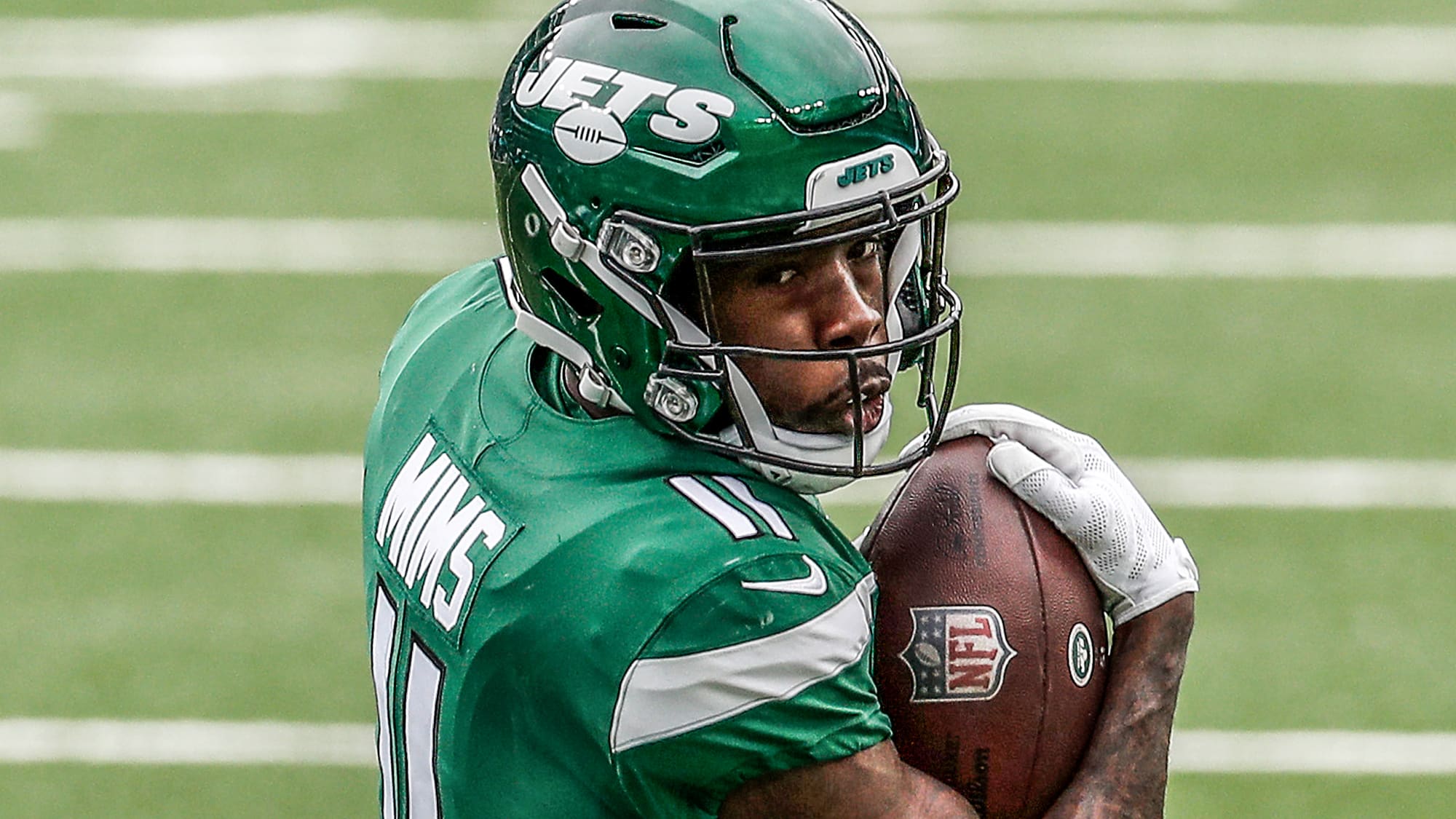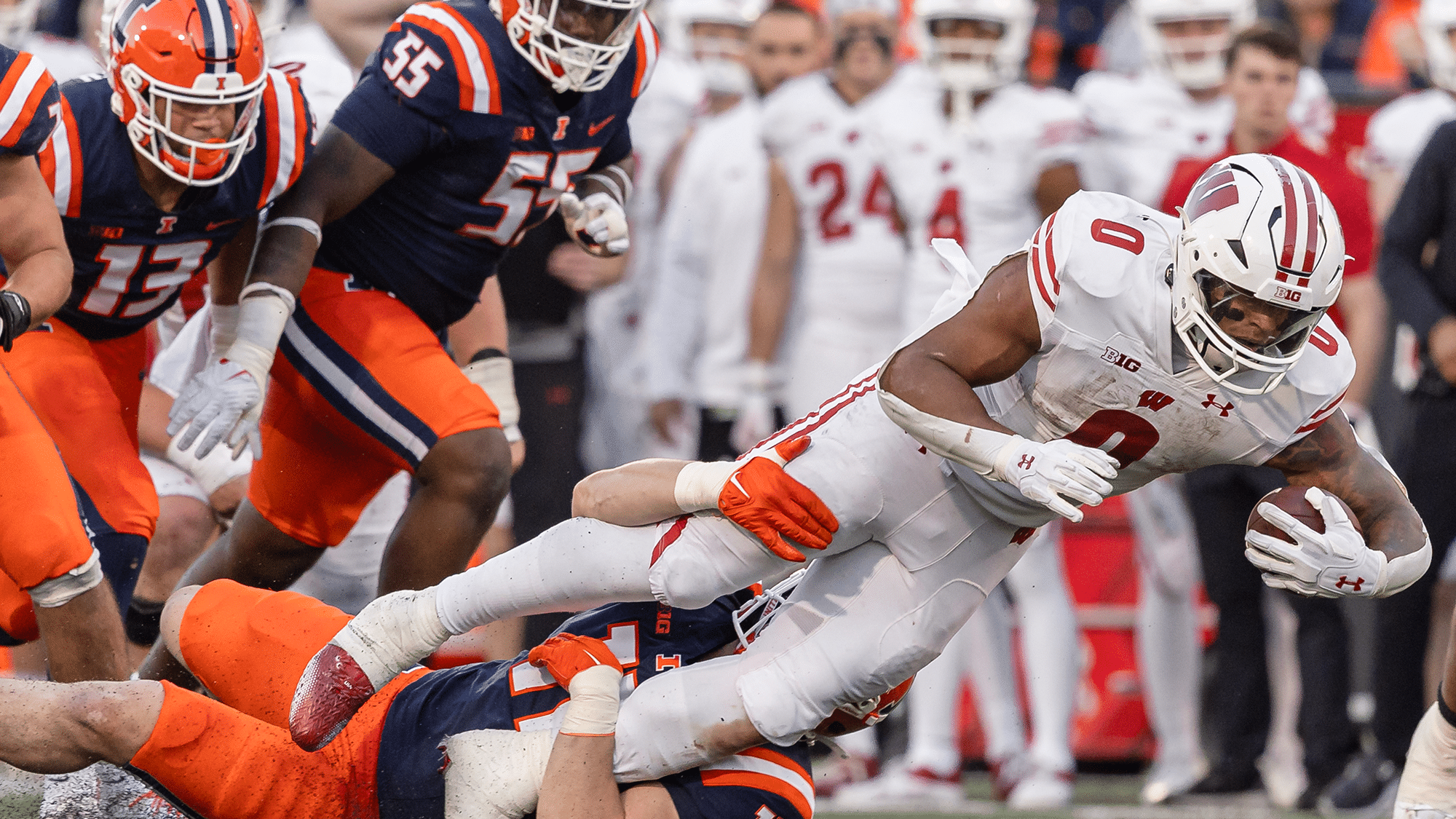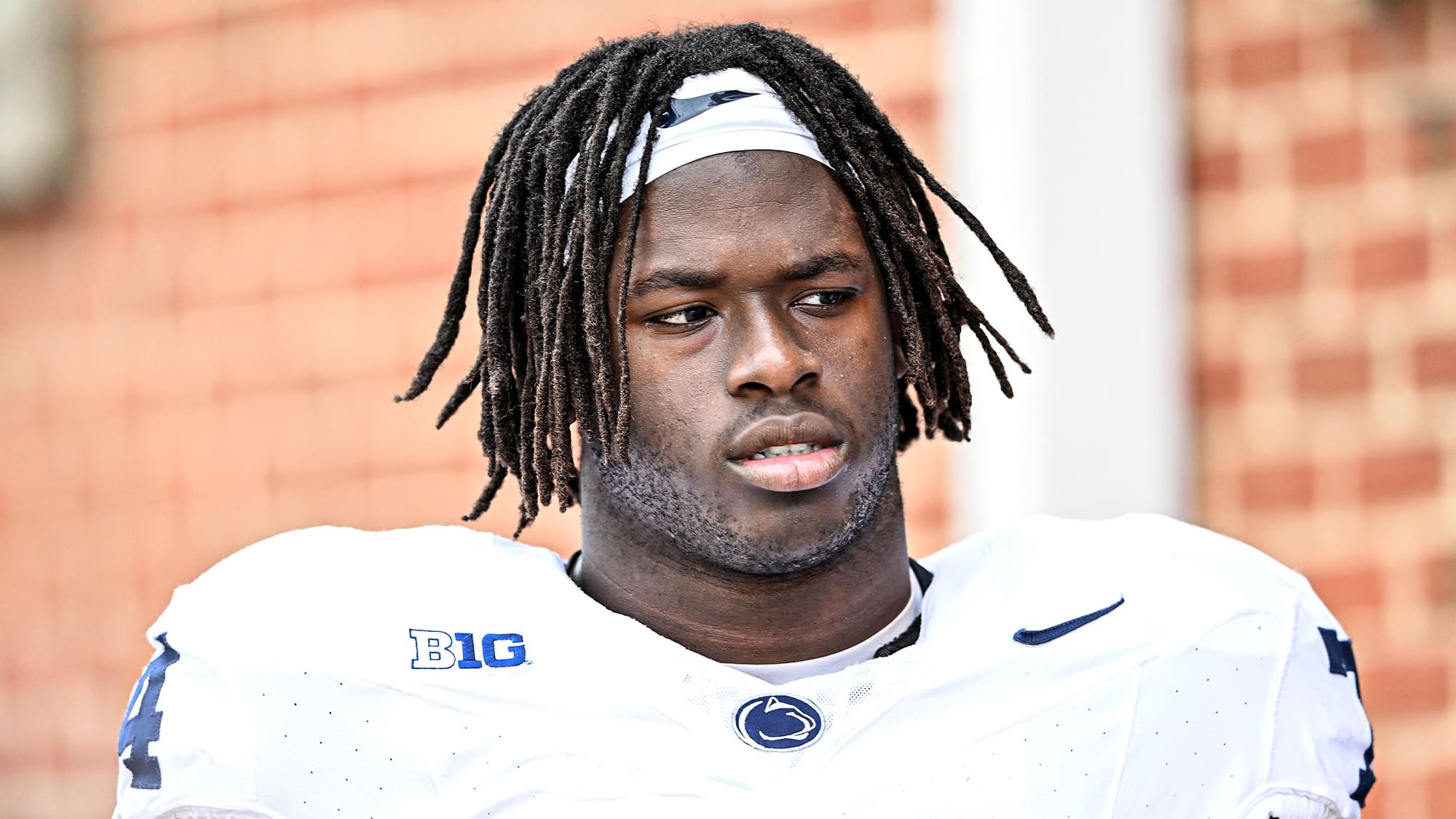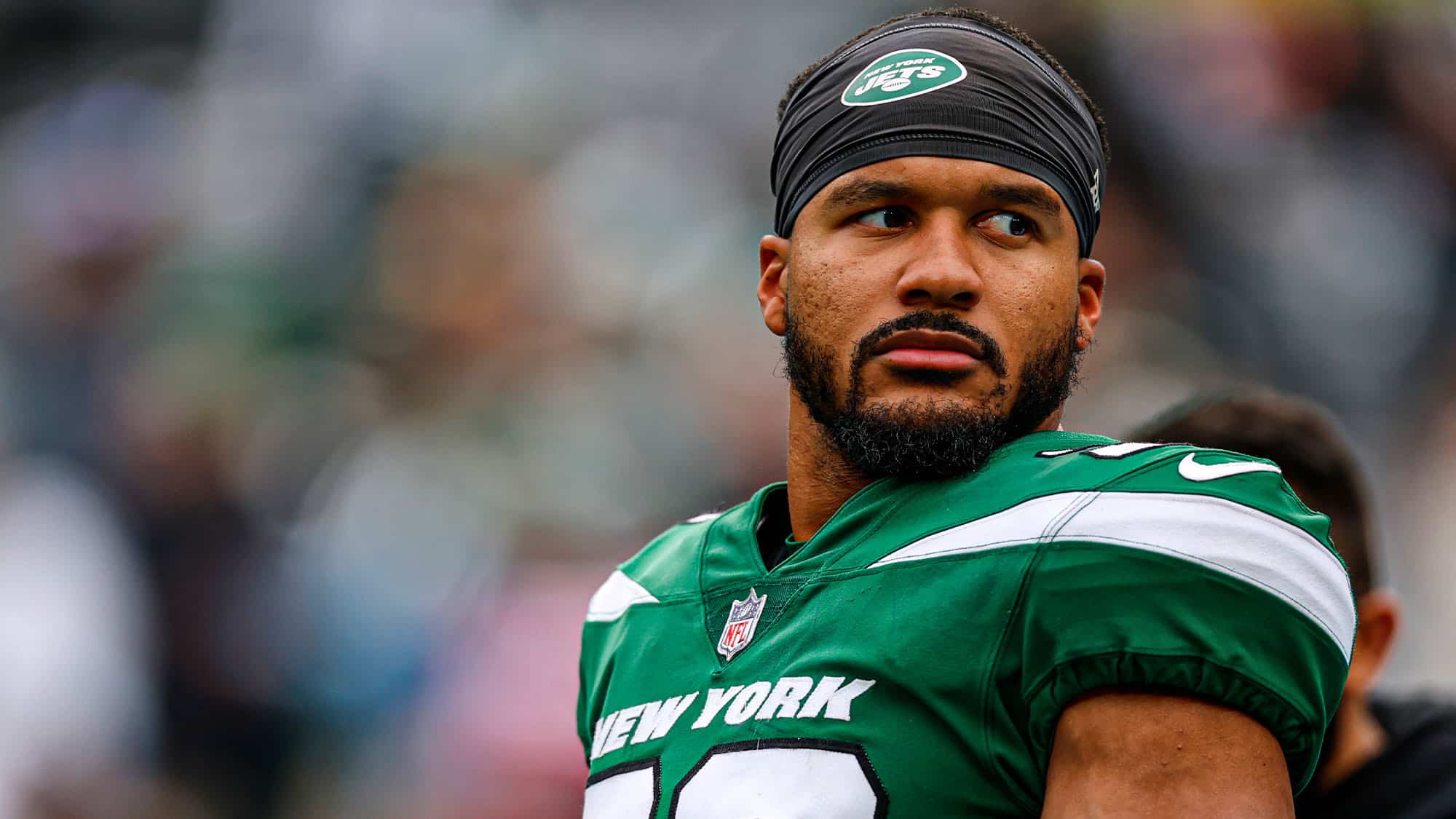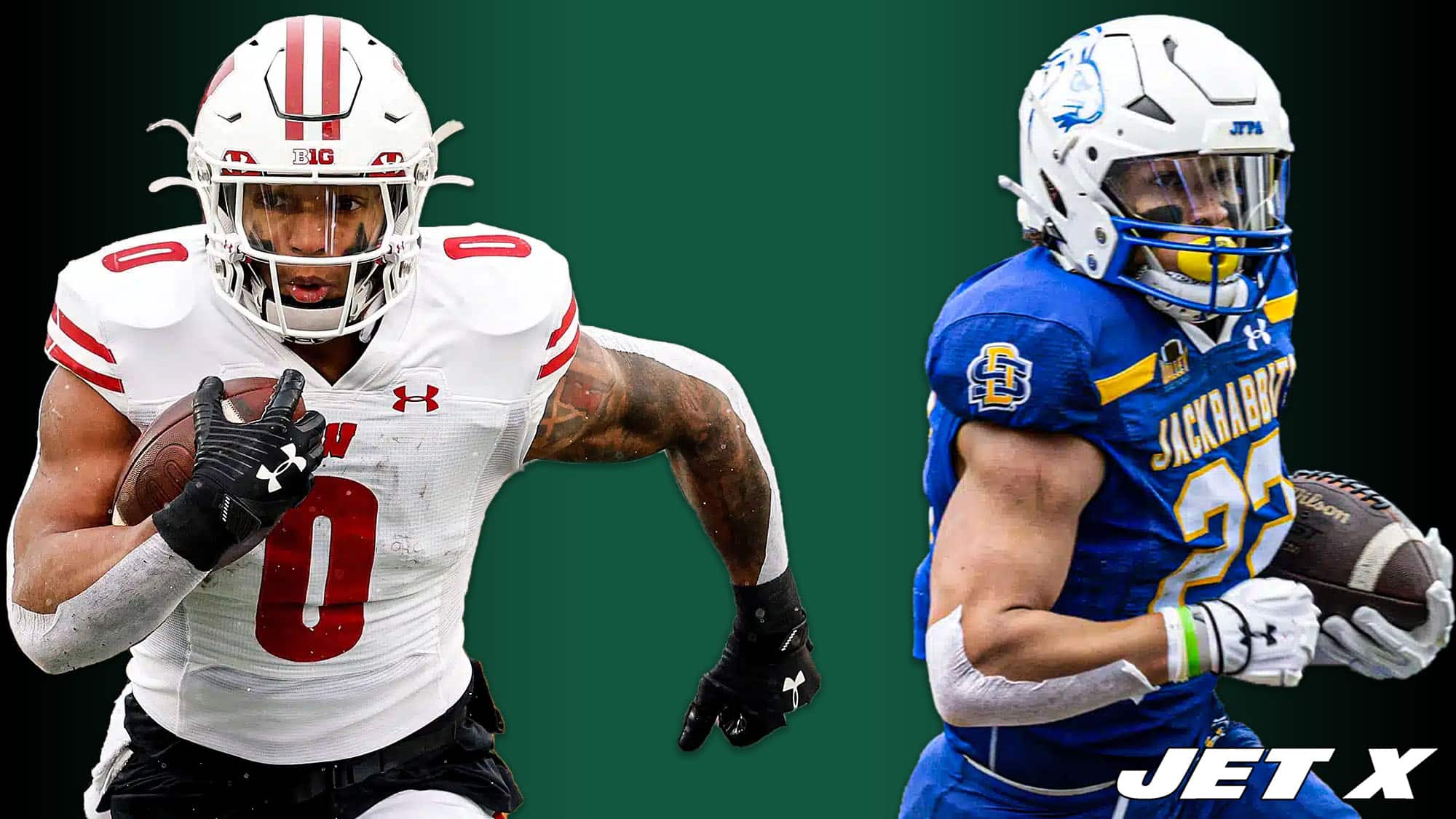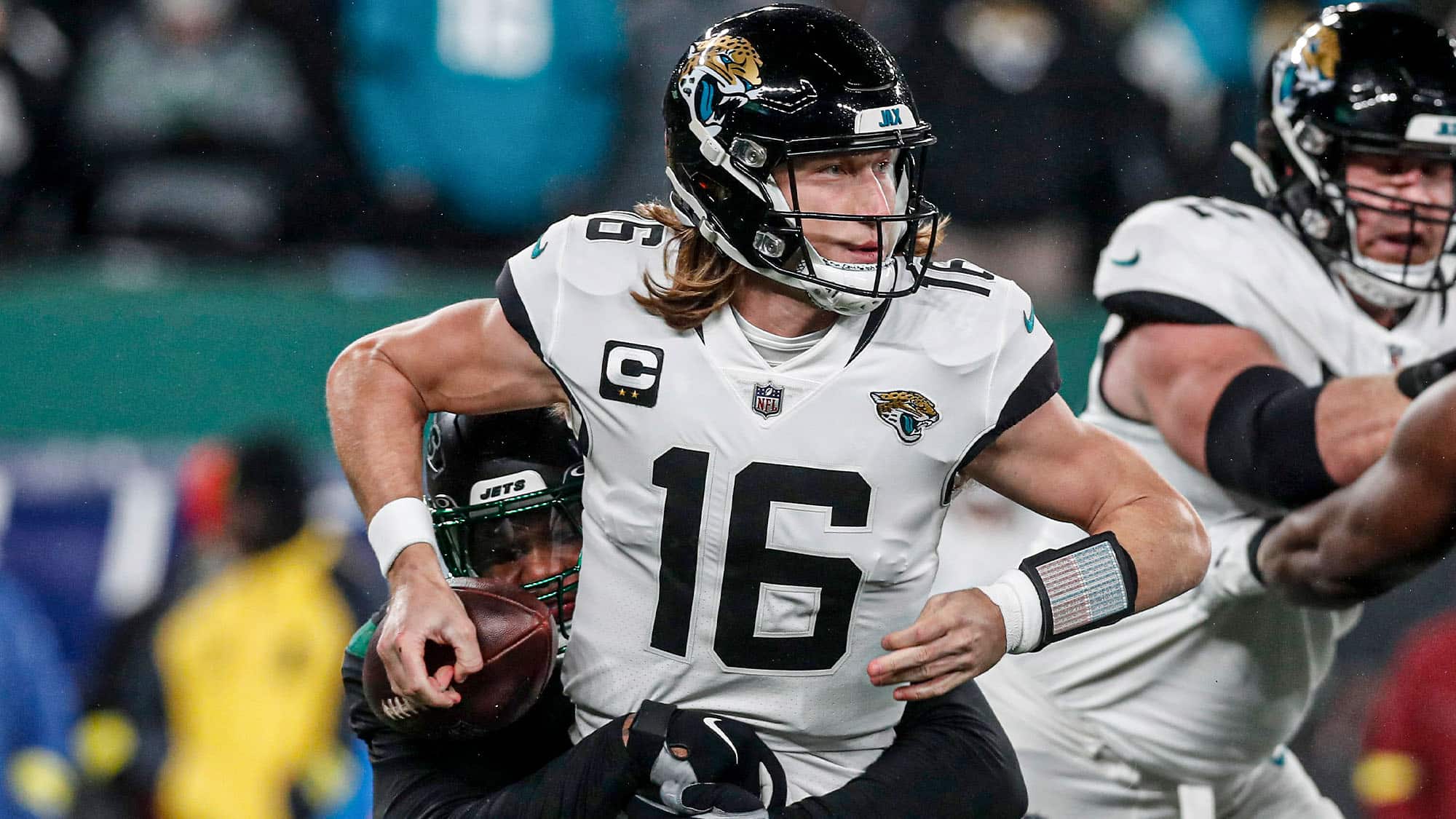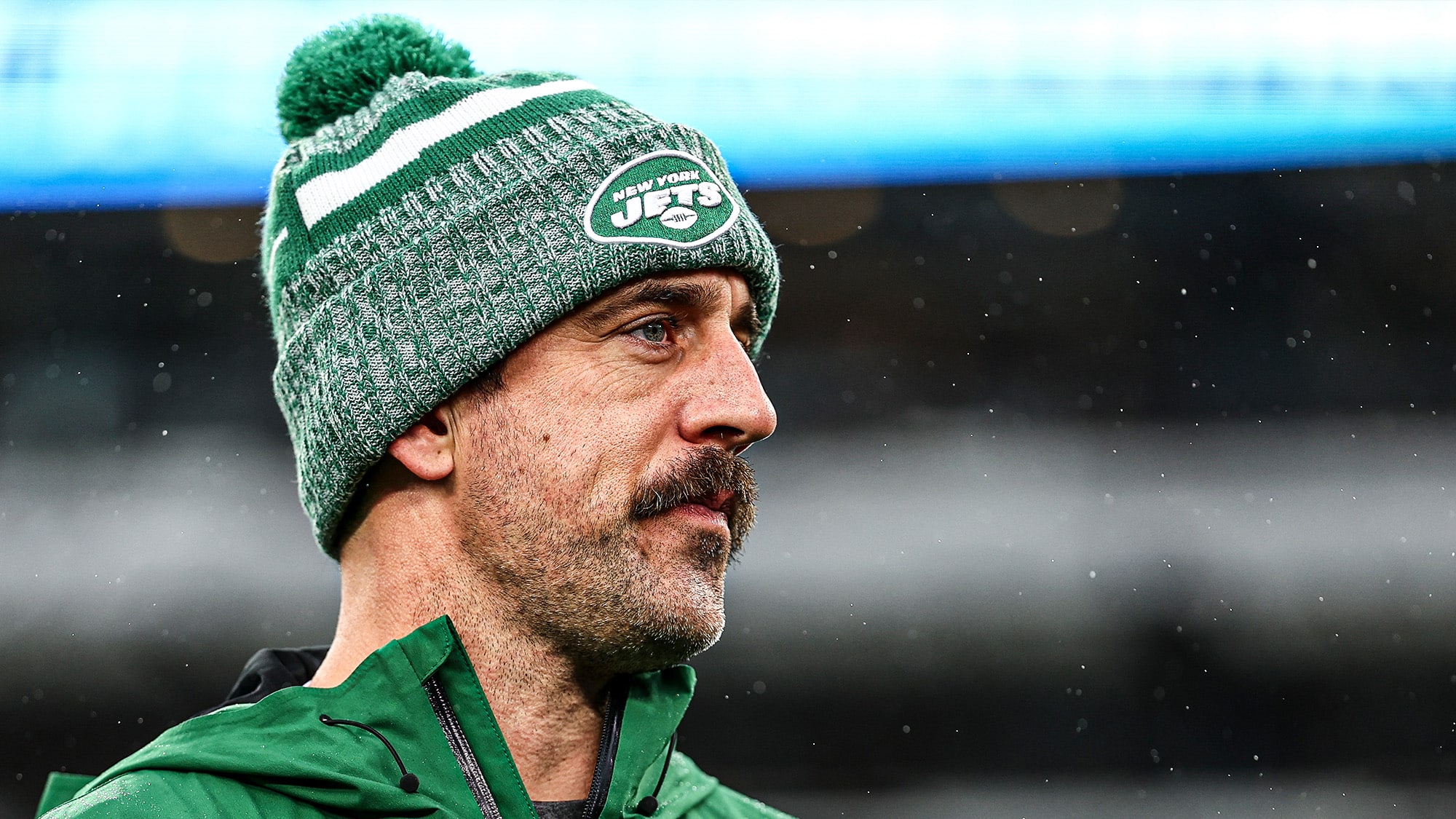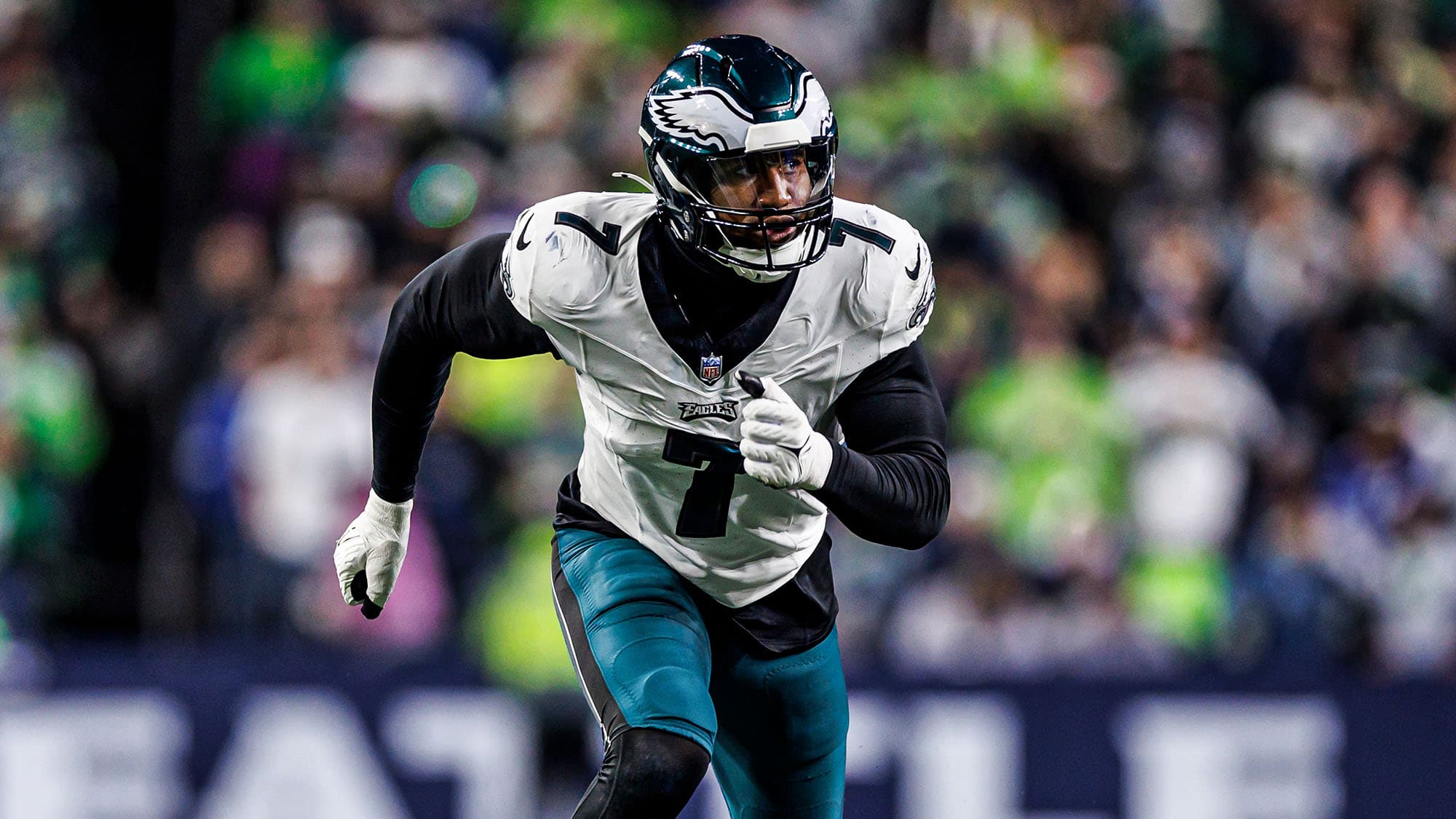Despite their 0-9 record, the New York Jets have had a handful of players provide the fanbase with hope going into the future.
10. Denzel Mims, WR
The tantalizing rookie has only played three games, and yet, it is hard to argue he does not belong on this list.
Mims ranks second on the Jets in both receiving yards per game (48.7) and receiving first downs per game (2.3), while his average of 14.6 yards per reception is tops among qualifiers on the team. Among qualified rookies, he ranks seventh in receiving yards per game, sixth in yards per route run (1.76), and fifth in yards per reception.
Posting at least 42 yards in each game, Mims is the first Jet to post at least 40 receiving yards in each of his first three career games since Keyshawn Johnson did it in 1996.
Mims’ numbers should actually be a lot better, but his quarterbacks have let him down. Against Buffalo in Week 7, Sam Darnold failed to see Mims for a wide-open touchdown and also delivered a few imperfect throws that limited his after-the-catch potential. Last Monday night, Joe Flacco misfired to an open Mims on two plays in which he was open for a first down and also overshot him on a go route in which he had enough space for a touchdown.
In addition, Mims has shown early flashes of becoming a top-notch blocker at the position, carrying that ability over from his Baylor career.
9. Greg Van Roten, RG
It is a shock for Van Roten to be here after the way he started the season. He led all guards with 15 pressures allowed through Week 4.
Van Roten flipped the switch starting in Week 5 against Arizona. Over the past five weeks, he has allowed only two pressures over 176 protection snaps for a pressure rate of 1.1% that ranks third-best among qualified guards. His overall Pro Football Focus grade of 75.9 over that span ranks seventh at the position.
Overall, Van Roten has a 67.6 overall grade at PFF this season, which ranks 19th out of 63 qualified guards and 10th among right guards.
8. Marcus Maye, S
Maye began the season in Jamal Adams‘ old role, ranging around the field taking on a variety of responsibilities while mostly living near the line of scrimmage. That experiment started off with a bang in the season-opener at Buffalo but went downhill afterward. From Weeks 2-5, Maye tied for second among safeties in missed tackles (6) while tying for second in touchdown receptions allowed (2) and seventh in total receptions allowed (11). He allowed 8.8 yards per target on throws in his direction over that span.
Gregg Williams moved Maye back to his familiar free safety position in Week 6, and he has been playing better football. Over his past four games, Maye has a ratio of 17 tackles to only one missed tackle, and in coverage, he has allowed just 4-of-7 passing for 21 yards (3.0 yards per target), one touchdown, one first down, and one interception. He is PFF’s fourth-ranked safety (84.8 overall grade) since Week 6.
It is worth noting that, since moving back to free safety, Maye has been beaten in coverage for potentially big gains or touchdowns on a few plays in which he was bailed out by a strong pass-rush or a flat-out miss by the quarterback, this one being an example.
Maye’s number of lucky bail-outs in coverage lays a significant dent in the impressiveness of his elite production since Week 6. Still, even with that taken into account, I think Maye’s level of play since moving back to free safety can be considered “good,” even if not “great.”
7. George Fant, OT
PFF is not too high on Fant, scoring him with a 65.2 grade that ranks 24th out of 37 right tackles, but I am willing to vouch for him and claim that he has played better than that.
I think Fant has played at the level of an average right tackle, which is a massive upgrade for this team and very valuable in a league where offensive line talent is scarce. Fant has had a couple of poor games (Arizona and the second Buffalo game, although he played LT against Arizona), but in my opinion, he has had four very good ones (Denver, LT vs. Miami, Kansas City, New England).
In the run game, Fant has not exactly been a road-grader to the extent of his counterpart on the opposite side, but he creates strong lateral movement in the outside zone game. As a pass-protector, Fant can struggle with power rushes and inside moves, but his protection against speed rushes and outside moves has been consistently excellent.
6. Brian Poole, CB
Similar to Maye, Poole has had some luck with not being punished for losses in coverage, but I still think he has had a solid season even if it has not been quite as fantastic as his numbers suggest.
Among 77 qualified cornerbacks, Poole has allowed the eighth-lowest passer rating (64.7), 15th-fewest yards per target (6.5), and 21st-fewest yards per cover snap (0.99).
Poole has also tackled efficiently, making 45 tackles and missing only two for a miss rate of 4.3%, 11th-lowest at the position. He has provided his usual activity against the run, tying for ninth among corners with six run stops.
Poole’s season is over after nine games, as he will be undergoing shoulder surgery. He will hit free agency after a second consecutive one-year deal in which he delivered top-notch production.
Will Poole cash in this time around? And if he does, will the Jets be the team to reward him? Poole’s body of work over his two years with the Jets is enticing, but he is going to be 29 years old in 2021, and there are concerns regarding the legitimacy of his production (hence why he had to settle for a one-year deal after posting great numbers in 2019).
5. Folorunso Fatukasi, DT
Fatukasi had a somewhat quiet start to the season, but he has come on strong in recent weeks. From Weeks 7-9, Fatukasi tied for second among interior defensive linemen with eight run stops.
On the season, Fatukasi owns PFF’s best run defense grade among IDL at 90.1. His raw power is elite, and he makes the most of it with great snap timing, burst, and leverage to create massive penetration.
4. John Franklin-Myers, DT
Franklin-Myers has been a brilliant interior pass-rusher, breaking out in his third NFL season after showing promise as a rookie with the Rams and missing all of the 2019 season. He ranks 15th among interior defensive linemen with 23 pressures despite ranking 52nd with 157 pass-rush snaps. His pressure rate of 14.6% ranks fifth-best out of 99 qualified IDL.
What makes Franklin-Myers’ breakout most impressive is that he is doing it at a new position. In L.A., Franklin-Myers was almost exclusively a 5-technique defensive end, rushing against tackles. As a Jet, Franklin-Myers has been playing on the interior, lining up primarily at the 3 and 4i-tech positions and rushing against guards most of the time.
The switch has worked out wonderfully. Possessing a major quickness advantage on the inside at just 288 pounds, Franklin-Myers’ explosion, technique, and finesse have all shined brightly. The countereffect of that advantage is an increased susceptibility to being overpowered in the run game due to the size disadvantage, but Franklin-Myers has squashed that concern thus far. He has shown enough strength and sturdiness to hold up on the interior against the run, allowing him to stay inside and maintain his dominance as a pass-rusher.
Franklin-Myers has a few different moves in his arsenal and shows a strong understanding of which moves work best against each matchup and in each situation, a sign of preparedness through disciplined work in the film room.
3. Quinnen Williams, DT
Williams can still get even better, but he has taken a big leap in his second season, inching closer to becoming the unquestionably elite defensive tackle that he has the potential to become.
Against the run, Williams has collected 19 tackles that held the rusher short of the first down marker and to a gain of two yards or less. That’s an average of 2.4 per game over his eight appearances, best among interior defensive linemen.
Including both the running game and the passing game, Williams has made 14 tackles at or behind the line of scrimmage, an average of 1.75 per game. That ranks second-best among IDL, just inches behind Aaron Donald (1.77).
While he can soar much higher, Williams has been efficient as a pass-rusher, ranking at the 62nd percentile among qualified IDL with a 7.9% pressure rate (15 pressures on 190 rushes). Since Week 4, he has a 9.5% pressure rate, ranking at the 75th percentile over that span.
It’s worth noting that Williams is facing a lot of obstacles in this department. The Jets are bad in coverage, which allows quarterbacks to get the ball out quickly. They have no productive edge rushers, which minimizes the number of times that quarterbacks step up into interior pressure. Williams is also frequently being asked to two-gap (defend multiple gaps rather than attacking one aggressively) and run stunts.
Nevertheless, Williams continues to improve.
2. Jamison Crowder, WR
When on the field, Crowder has been phenomenal this season. He has averaged 65.4 receiving yards per game out of a slot alignment, best in the NFL.
The crazy thing is, Crowder has been missed by his quarterbacks a lot this year. Flacco didn’t see him open for a potential 32-yard touchdown on back-to-back plays against New England. In Week 4, Darnold did not see Crowder get himself open for a touchdown in the red zone and also missed him various other times.
Even at his $11.5 million cap number next season, keeping Crowder around looks like a no-brainer as things currently stand. He is an incredibly adept separator in the underneath game, possessing great short-area quickness. On option routes, he has very good spatial awareness, almost always finding the open space. With the ball in his hands, he makes things happen – he tied for 11th among receivers in broken tackles last season (11) and is ranked fifth in broken tackles per game this season (1.2 with 6 in 5 games). To top it all off, he offers the ability to win deep at a rate that few other pure slot receivers can match.
1. Mekhi Becton, LT
Becton has been very good when healthy, manhandling defenders at all three levels in the run game and protecting at a sound level of consistency. His grades and numbers are somewhat mediocre across the board (which is still great for a rookie tackle, as first-year offensive line starters are usually abysmal), but Becton’s tape resembles that of a top 10-16 left tackle, which Joe Blewett has touched on throughout the season.
Becton’s lackluster PFF grade (24th out of 35 left tackles) could be pinned on a few different things. For one, he has clearly been playing through some injuries as of late. He has also been playing alongside the atrocious Alex Lewis, who leads all guards in pressures allowed and has made both Becton and Connor McGovern look worse through his poor awareness, lack of quickness, and overall ineffectiveness on any sort of combo block. The Jets have also dealt with brutal pocket presence from Sam Darnold (and some from Joe Flacco), which could be making the entire offensive line’s numbers and grades look worse than they should.
This is not to say Becton has been flawless – there are areas where he needs to improve to fulfill his potential – but I would argue he has certainly been a top-half left tackle. Being respectable is a tremendous foundation for any rookie lineman, especially one who was considered somewhat of a project, is coming in during a season in which offseason practice time was limited, is playing next to a bad left guard, is in front of a struggling quarterback position, is battling injuries, and is on a poorly-coached offense.
Most rookie linemen – including the ones that turn out to be great – look extremely raw even in the best of situations, yet Becton has overcome a treacherous environment to look like a future star.
Becton’s profound impact has been made clear during the stints in which he was not on the field.
In Week 3 against Indianapolis, Becton allowed zero pressures over 20 protection snaps before leaving the game. Once he went out, it wasn’t long before his replacement, Conor McDermott, allowed a sack for a safety to Justin Houston. McDermott also allowed two more hurries and took a holding penalty, while he had numerous other losses in which he was lucky the ball came out quickly. Indianapolis’ edge rushers had looked lost against Becton, and once he left the game, they went wild.
In Week 4 against Denver, Becton did not allow any damage of note to Broncos edge rusher Bradley Chubb over 17 snaps. Once Becton went down and was replaced by McDermott, Chubb proceeded to post a career-high 10 pressures.
In Week 9 against New England, the Jets were averaging 5.3 yards per carry prior to Becton’s exit but posted just 2.5 yards per carry after he was replaced by Chuma Edoga.
I’m not exactly sure why Becton’s grade is so mediocre, but based on what I have seen on film and by all other accounts (once again, go see what Joe Blewett has to say about him), he has played impressive football this year and is on his way to becoming an outstanding left tackle for a long time.

